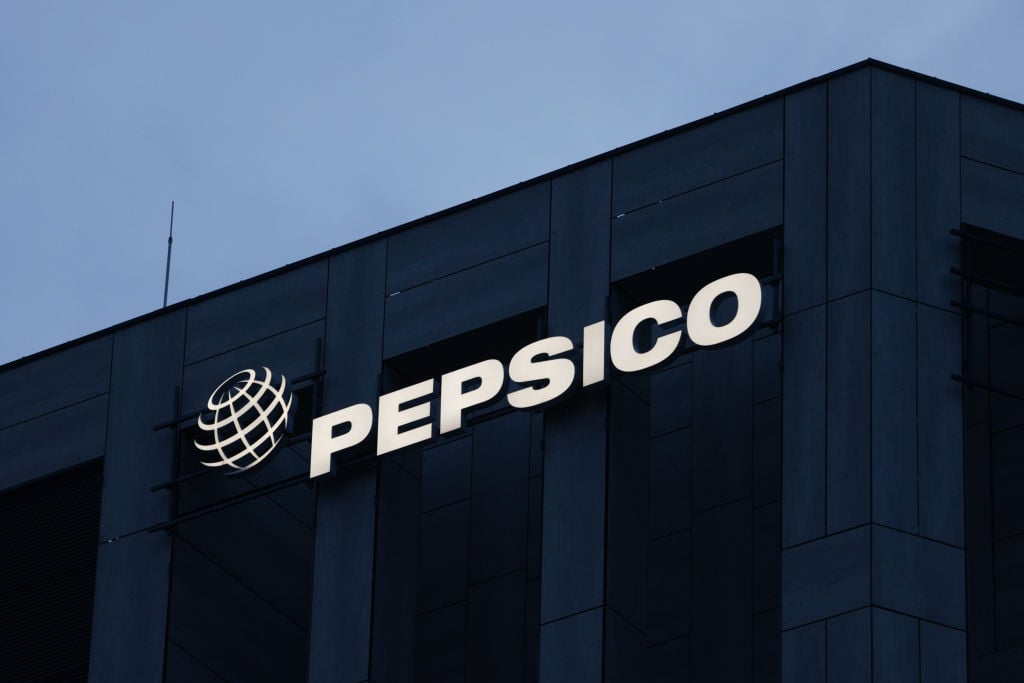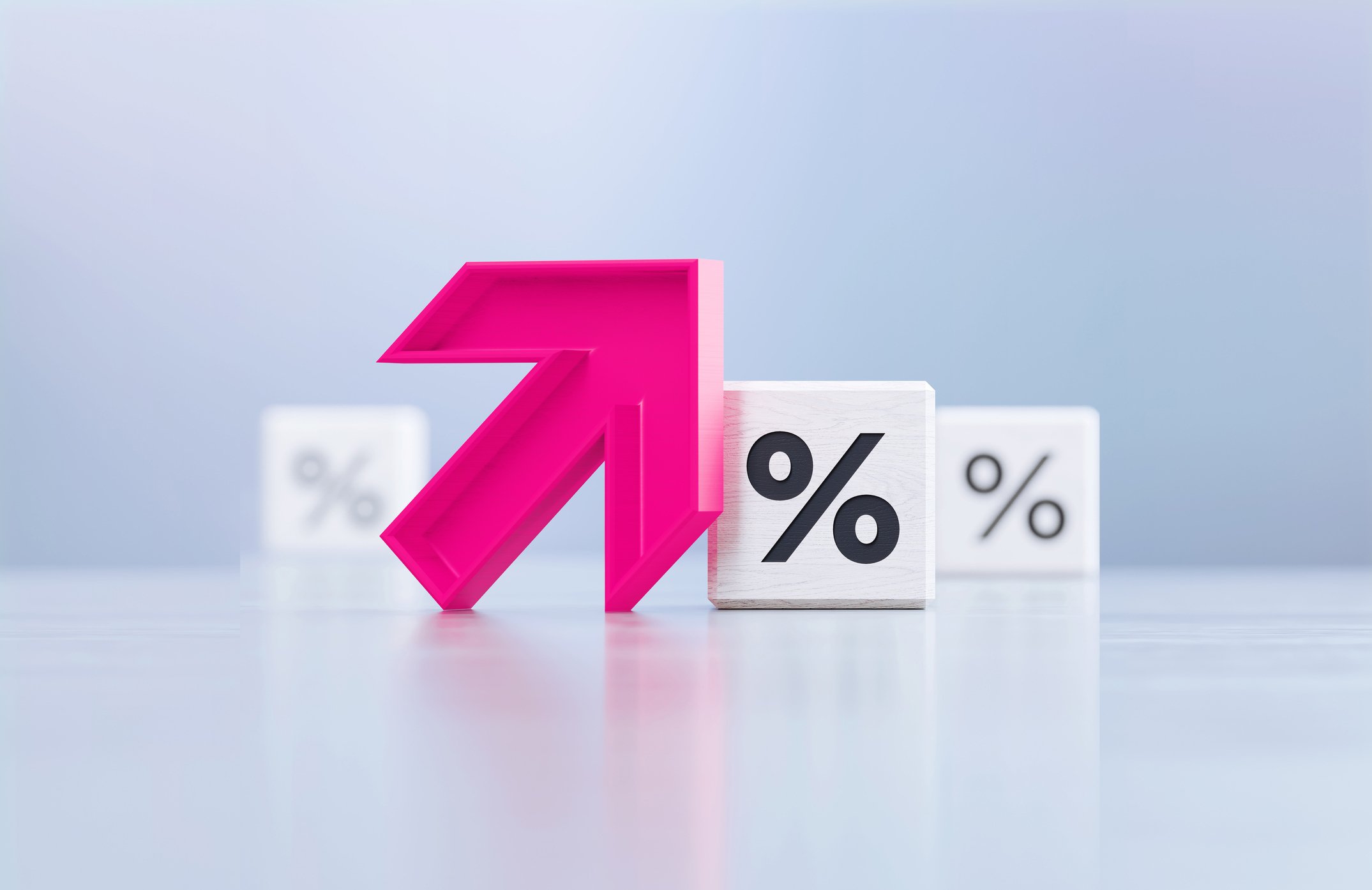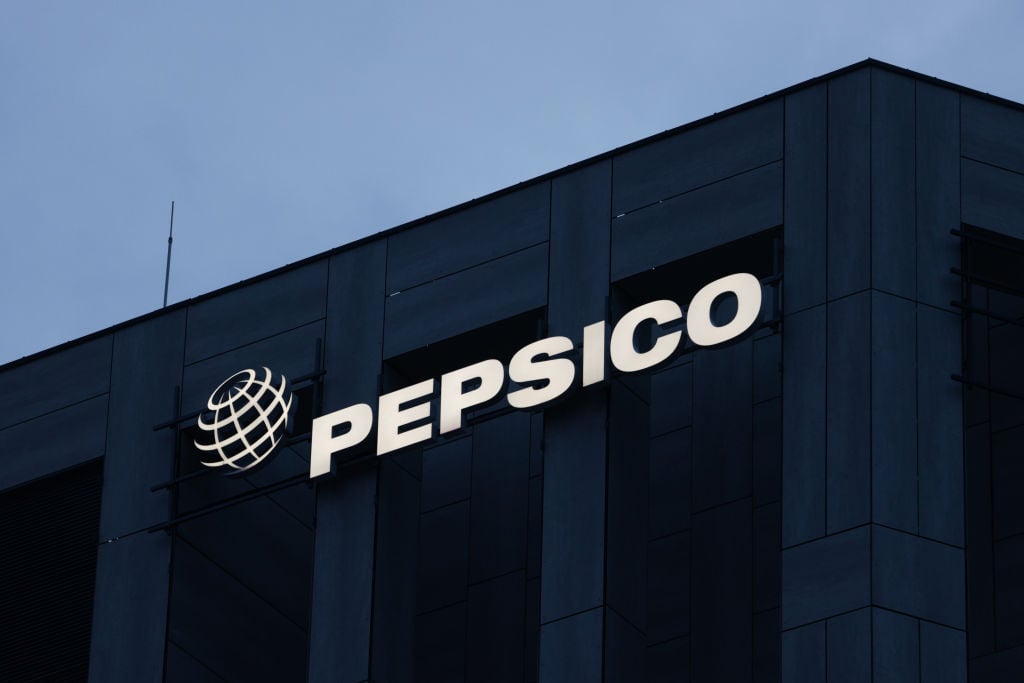In this episode of Market Foolery, host Chris Hill and Motley Fool contributor Jason Moser hit on a few of the market's biggest stories. First and foremost, happy merger Monday! Pepsi (PEP 1.42%) just gobbled up SodaStream (SODA +0.00%) for some $3.2 billion. The hosts talk about what this could mean for the soda giant in an era of dying pop, why the timing of this deal probably wasn't the best, and why some analysts are skeptical of the merger.
Also, Adidas (ADDYY 2.51%) partnered up with Twitter (TWTR +0.00%) to live-stream high school football -- a team effort that benefits both companies. And oh, sad day: Rumors emerge of a buyout on the horizon for Cajun chicken chain Bojangles (BOJA +0.00%). The fast-food industry continues to be brutally hard to forge alone. Could this be for the best? Tune in to find out more.
A full transcript follows the video.
This video was recorded on Aug. 20, 2018.
Chris Hill: It's Monday, August 20th. Welcome to Market Foolery! I'm Chris Hill. Joining me in studio, Jason Moser. Are you ready?
Jason Moser: I'm ready. Hey, listen! I was ready at five o'clock this morning. I got up to take my mom back to the airport. I saw this news bright and early.
Hill: I woke up to emails from listeners saying, "You're going to talk about this, right?" Yeah. We've got restaurant news, and we've got sports media news, but it is merger Monday, and we're starting with the news, of course, that Pepsi is buying SodaStream for the cool sum of $3.2 billion. Pepsi is paying $144 a share. It has been a really good year for SodaStream's shareholders. It started the year at just under $70 a share.
Moser: That's a lot of seltzer. SodaStream has had a very interesting, let's just look at the last five years. In the last five years, the stock has been on a bit of a roller coaster. Recently, it's certainly made a comeback here. I think generally speaking, you have to like the trend this plays into for Pepsi because of the headwinds soda faces. Also, I think this fight against waste, excess plastic bottles, whatnot, this is really what SodaStream is battling. It gives you that device in your home that you can make your seltzer. And they did really focus on being able to make your own soda for a time. But since soda has more or less become a pariah, now they're focused on just saying, "Hey, you can still make seltzers and flavored waters and whatnot." I think, given Indra Nooyi's global take on things, I think she likes this kind of message. Fighting obesity and soda consumption and fighting waste with plastic bottles.
I do kind of feel like... I don't know. They're buying SodaStream at the very top. I can't help but feel like maybe, a few years from now, we're going to see a big goodwill write down on Pepsi's part.
Hill: Oh, really?!
Moser: I mean, I feel like they're probably going to have to write down some of this. This is not a cheap deal, by any means. They really are getting SodaStream at the peak of a recovery. Any challenges they may have faced in the coming years, I think the stock has gotten a little bit ahead of itself, when you consider that it really is a European play still. It's a play on Western Europe. Not as much on the U.S.
Hill: It will be interesting to see if there's a write down. I had a similar thought. I like the move, Indra Nooyi going out with a heck of a mic drop, wrapping up her 12 years as CEO. I like the deal. The thing that I questioned was not so much, "Wow, they're buying this at SodaStream's top." I mean, yes, that is the truth. But I also looked at it as, "Boy, it's not like they just started working with SodaStream." That's why, I think, if you're a Pepsi shareholder, even if you like this deal, you do have to ask the question, what could have been. They've been working with SodaStream for years, and certainly, if they had looked to pull the trigger on this deal even a year ago, you have to figure they're paying at least a billion dollars less. So, that's the only thing. I don't know. I guess we can bet a cup of coffee on whether or not there's a write down. I like the move, but considering how long Pepsi has worked with SodaStream, that's the thing where you just go, "Boy, if they had bought this ... " they could have gotten this thing for a billion dollars maybe two years ago.
Moser: Yeah, it sure feels that way. I mean, we love these razor and blade models. You have a company that's selling a device or a contraption, and then you have to keep on refilling that device or contraption with something that is specific to that actual device. I look at the Keurig Green Mountain machine vs. the SodaStream. There are some similarities there. Certainly, we've seen how successful the Keurig has been. I think it's a little bit of an easier device to use, the Keurig. I think the Keurig probably lives a longer life on most countertops here, at least domestically. I think the reason is, it's the device and then the pod, right? You're not really having to make another leap there. With the SodaStream, it's the device and it's the gas cartridge. And then you have to either add your flavoring, or you just get your water. But what I found in having used the SodaStream that we have here at work, which incidentally just sits here and collects dust now -- it doesn't really seem to carbonate as well as, perhaps, some of the seltzers you might buy in the store. I felt like, if we bought a SodaStream machine, it would ultimately just collect dust. And I love seltzer. I mean, I drink a lot of it every day.
Again, this is a play primarily on Western Europe. We've seen that domestically here, SodaStream, at least at this point, isn't gaining as much traction. That's not to say that it won't down the road. Certainly, Pepsi has a massive distribution network where they could pull some more levers and possibly get this thing into more homes and cut prices and figure out new ways to monetize it. I think ultimately, it's something that fits into their model very well. It just, wow, they're paying a lot for it.
The upside there is, it's all cash on the balance sheet. They had the money to do it. It's just going to be an acquisition they make, and then Nooyi gets to ride off into the sunset saying, "Hey, guys, do well. See you soon. Bye."
Hill: [laughs] "Go ahead and knock that out." Adidas is partnering with Twitter to livestream high school football games starting next month. This is in a series they're calling Friday Night Stripes, I'm assuming because they would be sued if they named it Friday Night Lights. I'm curious what you think of this. This seems like a small win for both Adidas and Twitter, with maybe slightly more upside for Adidas.
Moser: Yeah, I think you're probably right there. I like these kinds of deals. I think they're generally win-win for both parties involved. I think Adidas here gets the brand exposure that it's really gunning for, and Twitter gets a chance to demonstrate its utility here for a younger demographic. We talk about these networks, whether it's Twitter or Snapchat or Facebook, you need to demonstrate utility for a wide cross section, right? We're trying to see if Snapchat can perhaps demonstrate that utility for the older audience. Twitter, I think they really kind of have to figure out how to maintain relevance with that younger audience. One way to do that is to keep on throwing content out there that a lot of people like.
I actually like, in their video strategy, a little bit the Netflix's. The reason why I say that is because they tend to want to cast a very wide net and show a bunch of different stuff that is just a little bit of something for a lot of people out there. I'm not going to go watch Middle Atlantic lacrosse, probably, but there are plenty of people that will. High school football, it's interesting to note, this is going to be something that spans the country. It's going to have the top high school teams in the country playing. This is going to be actually pretty compelling content for the football enthusiasts, as well.
The incremental cost for Twitter doing this, modest at best. This is something where they get to really utilize that infrastructure that they've already built and proven out. Gives them the opportunity, probably, to monetize on the advertising side. Adidas gets the brand recognition. I think it's a win-win, easy bet.
Hill: To go back to the Netflix comparison, you have to assume that part of Twitter's thinking here is similar to Netflix's in this regard: "Well, if we can get people to try this, hopefully we can get them to stick around." With Netflix, it's creating buzz-worthy shows --Orange is the New Black, House of Cards, any of the shows that Netflix has done. Same sort of thing. It's like, "If we can just get people onto our platform for this one show, maybe they'll stick around." In the case of Twitter, they're being smart. This is not just southeast United States' high school football, it's across the country. Same sort of thing. "If we can get people onto Twitter, just to check out this platform, maybe we can get them to stay."
Moser: Yeah, and it's not exclusive to just logged-in users, either. This is going to be logged-in, logged-out users. You're going to be able to get this content regardless. I think there are a number of benefits to that. That really gives you the biggest potential audience you have. Also, not only does it give you a chance to sign up new users, but I think it helps them steer that conversation away from this monthly active user number or even daily active user number.
Really, just showing that wide-reaching network that Twitter has, where people are going to see that content all over the place. You may not be a Twitter user, but if you're watching TV, chances are pretty good you're going to see a lot of Twitter content out there regarding something.
With sports, that's a great vertical for Twitter. We've seen the impact it has when they stream the NFL games and there's a lot of potential there. It's not going to be just one big deal that really knocks it out of the park for these guys. I think it's going to be a lot of these little deals that aid companies on the other end of the transaction looking for that brand exposure, looking to Twitter as a unique and good fit for the content they're trying to get out there.
Hill: I mentioned listeners emailing about the Pepsi-SodaStream story. Have to say thanks to Lee Watson, a listener who posted this story in our Facebook group -- which anyone can join if you're on Facebook. Motley Fool Podcasts. Courtesy of the Charlotte Observer, a story about Bojangles, your beloved Bojangles --
Moser: The 'jang!
Hill: -- closing underperforming restaurants, dropping some menu items, all of which leading to the speculation that Bojangles might be prepping itself for a sale. When I saw that headline, I thought, "Well, wait a minute." And by the time I got done reading the story, I thought to myself, "You know what? I think that's the way to bet right now."
Moser: I think you're probably right. When Bojangles went public, the first question that I had when the company went public... I mean, trying to separate my personal feelings for the Cajun chicken filet biscuit with the actual business itself...
Hill: [laughs] By the way, we laugh about that, we joke about that, but your experience right there, that's something that so many of us as investors have to do -- separate our own personal experience, which can be great or it could be terrible, and the case for investing in a stock can be the opposite of what our own experience is.
Moser: Absolutely! In many cases, it can be. I think that's one of the tougher lessons to learn as an investor, and one of more valuable ones you can learn and carry on with you for the rest of your investing life. When it comes to Bojangles, the No. 1 question I had out there was, does this company have what it takes, does the brand have what it takes, to reach beyond its quintessential southeastern identity? And the answer, I think, here, is really no. They haven't been able to take this concept across the country and grow it to the extent that they thought they could in the S-1 they filed when they went public. I mean, I can't say I'm terribly surprised by that. By the same token, I wish they could. [laughs]
I do feel like there is plenty of opportunity out there for the product that they're selling. But it's also a very crowded market. You have KFC out there, you have Popeye's Chicken. Restaurant Brands owns Popeye's Chicken and Yum! owns KFC. Then you have Bojangles out here on its own. I think for a while, while we were perhaps hoping to see Bojangles make it on its own, in the back of my mind, I knew it was probably going to end up being acquired by someone and being a part of a bigger company. That's how most of these restaurants have to work these days. It's very difficult to make it on your own in the food service business, particularly fast food, which is the market in which they compete.
The chances of them being acquired are probably better now. There are a number of different ways they could go. Inspire Brands is the going favorite to bring them into the family. Inspire owns Buffalo Wild Wings now, and Arby's. Inspire is a company that's owned actually by Roark Capital, which is in Atlanta. Last I checked, Atlanta's pretty familiar with that Bojangles brand, so it wouldn't shock me at all to see that happen.
It's such a tough business to compete in, especially if you're new and getting your feet under. We saw the same kind of thing with Zoës last week, when we saw Zoës (ZOES +0.00%) acquired by Cava. I think that made sense, too. Zoës is not a small, inconsequential concept, but it's just really difficult to get out there and compete, especially if you can't grow that brand countrywide.
Hill: Although, to go back to Zoës, you look just through the lens of the stock, Zoës Kitchen, those shares were getting crushed. Shareholders got a complete lifeline in Cava Group buying them out. Shares of Bojangles, for whatever struggles they're going through, stock's up 20% year to date.
Moser: Yeah, but it's not been a great public life. The stock is down from the IPO. Investing is always a matter of when you got in. Anyone who got into Bojangles at the beginning of the story is probably feeling like the investment didn't work out so well. But perhaps there is some light at the end of the tunnel. Perhaps there is a bit of a premium that they go out at. I don't think it's unreasonable to think that they will be acquired at some point. Bojangles has been around for a lot of years. It's not like it's just some concept that's failing. It's just a concept that's very difficult to grow on its own. There are a lot of companies out there, private and public, that would love to have a brand that really tackles one part of the country well. And when you can get those types of brands and run efficient operations, franchise operations like Bojangles are, in many cases, they can be immensely profitable.
Hill: Last week on Motley Fool Money, one of the things we talked about was JC Penney, how they're still without a CEO. I was reminded, reading this story in the Charlotte Observer, about the abrupt resignation of Bojangles' CEO back in March. They have an interim CEO right now. As much as anything, is that the thing to watch with Bojangles? Barring an announcement of someone coming in to buy them, it seems like an announcement about the CEO, whether it's the interim CEO is now being made permanent, or, we found a new CEO, it seems like that's going to be the next best clue of the future of Bojangles.
Moser: Yeah, but I mean, I don't know that it really is going to mean anything one way or the other at the end of the day. If they get someone in there on a more permanent basis, any which way, I'm sure the person that ends up getting that job on a permanent basis is going to come out with their three or four-step plan and how they aim to revolutionize the brand and turn things around. And we know that a lot of times, that's just stuff they have to say, right? We're not going to hire some CEO just to go out there and tell us how bad we suck. We want that CEO to go tell us how things are going to get better.
There may be the chance where they do make something official. But my bet is, given the equity, given the VC owner interest in Bojangles, the way it is today, there is a majority stakeholder there that is trying to realize the best return on their investment they can. They're going to be the ones pulling a lot of the strings anyways.
Hill: And the market cap right now is around $500 million. You have to assume that if they get bought out, they're not getting SodaStream money.
Hill: [laughs] No. We talk, always, about that 30% premium and whatever that really means. I think that's maybe a rule of thumb. I definitely would not buy shares of Bojangles today on an acquisition thesis. It very well may happen, but if it doesn't, then you've got this struggling restaurant concept that doesn't really have any strategy in place and doesn't really have a leader that's married to the success of this business to date.
If you get a CEO in there who, they announce a CEO on more of a permanent basis, then perhaps you have a little bit of something to fall back on. That goes back to why we talk so much about leadership. Really, leadership can make all the difference in the world. McDonald's was a great example. You had Don Thompson that jumped in there. And I mean, he was very well experienced with the company. He was COO for a number of years. And he had a year and he couldn't make anything work. And then you get Steve Easterbrook in there, the guy just can't do anything wrong. He brought McDonald's back from the dead. Oftentimes, it just does come down to leadership.
Hill: We're not bullish on Bojangles' stock. We are, however, bullish on breakfast.
Moser: Extremely. And they are too! That's like 40% of their business. That's another problem, really, believe it or not. When so much of your business depends on breakfast... breakfast is a very competitive space, too. We've seen it already. It's tough to fight.
Hill: As Ron Swanson said, there's never been a sadness that cannot be cured by breakfast food.
Moser: I agree with that 100%.
Hill: Jason Moser, thanks for being here!
Moser: Thank you!
Hill: As always, people on the program may have interests in the stocks they talk about, and The Motley Fool may have formal recommendations for or against, so don't buy or sell stocks based solely on what you hear. That's going to do it for this edition of Market Foolery. The show is mixed by Dan Boyd. I'm Chris Hill. Thanks for listening! We'll see you tomorrow!





